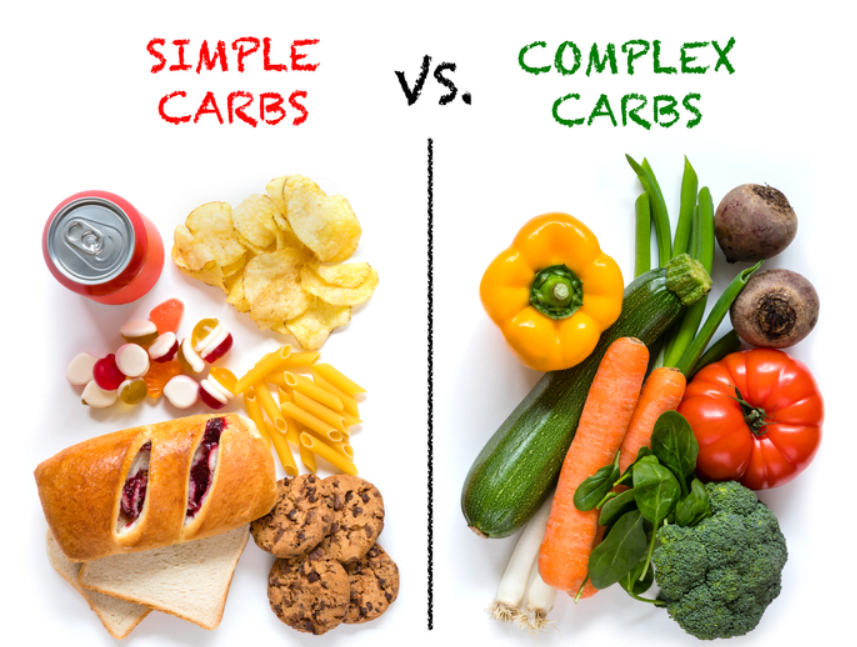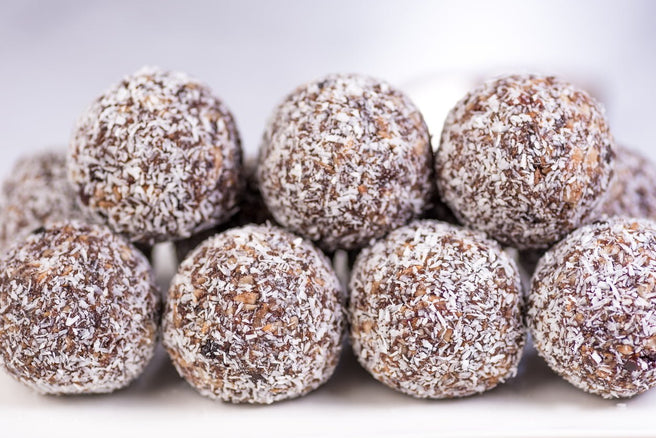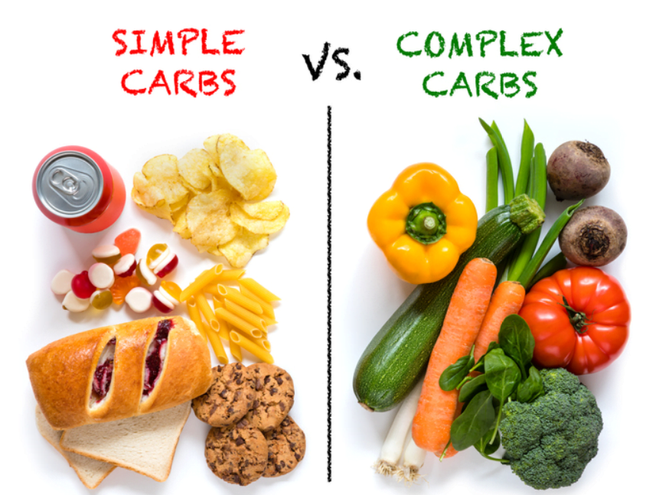
- Health advice
- May 03, 2018
De-bunking the “no carb” dieting and restricting calories/ food groups movement.
It is a common belief that eating minimal, to no carbohydrates and a high protein diet helps keep people trim, lean and 'fit' looking. Firstly, yes if you delete carbohydrates out of your diet your body will shift. It will change, you may even loose some weight. When did we become a society however where we just delete a whole food group and think that our health with remain optimal afterward? I want to talk about the science of the breakdown of Carbohydrates, Fats and Proteins and how the body actually uses these three Macronutrients for fuel.- The first and only fuel your body uses and relies on for muscle repair, brain function, working out and so on is glucose. Glucose is made from CARBOHYDRATES! Carbohydrates are your primary source of fuel for your muscles – the fuel your muscles need to burn to be able to workout.
- The second is from branch chain amino acids – PROTEIN
- And the third is Fat.
Detrimental Effects of Deleting Carbohydrates
It is important to be aware of the detrimental effect of what deleting carbohydrates does to you in the long term, deleting any food group for that matter without proper advice or factual medical reasoning. You starve yourself of a macronutrient that your body REQUIRES for fuel for many functions and your body will eventually work out its own way to get its energy source from somewhere else. Energy reserves are needed in the body and the body is smart enough to outsmart you, it will cling to fat like no tomorrow and break down your muscle if you stop giving it what it needs, that’s right, hold onto fat and break down muscle, the exact opposite of what most people on low carb diets are trying to achieve! Not to mention the epidemic that I have called “overtraining” which you can read more about here. Being in a constant calorie deficient state means you are not getting the nutrient or calories your body needs to maintain repair and remain optimally healthy. Your balance of nutrients becomes depleted, effecting all areas of your body, for women hormonal concerns are the biggest red flags when it comes to crash dieting and low carb diets. Heavier periods, Increased cravings and PMS, no periods at all, imbalance of hormones causing mood swings and insomnia. Your skin can become effected, immune system function, mood, fatigue, energy, the list goes on! For men your testosterone is your most important hormone for said metabolism of fats, muscle mass and bone density as well as arousal, erections and libido as well as blood pressure. Low testosterone is a common condition of a restricted diet due to overtraining and undereating – or just filling up on protein powderLow testosterone causes fatigue, weight to hold around the middle section and inability for proper muscle growth. A low fiber, high saturated fat diet (meat and no carbs) causes a drop in circulating androgen levels. Most men want to grow muscle but are yet to link the two together when it comes to training and eating, believing that protein grows muscles, but protein repairs muscles, there is a difference.Low Carb & Stress
A low carb, high protein diet raises cortisol levels which in turn effect the way testosterone is produced, the body goes into starvation mode and perceives the starvation as stress, which raises cortisol, when cortisol is raised the body is in “fight or flight” more using the sympathetic nervous system, a state where every other function in the body becomes obsolete, especially hormone production as the body doesn’t need this to survive. In the sympathetic nervous system state we can also see problems with gastrointestinal functioning such as bloating, upset stomach, changes in stool patterns ad reflux to name a few. Performance when training solely relies on glycogen storage. Glycogen is used as fuel for training and can only be derived by consuming complex carbohydrates prior to exercise. When you sleep, your body considers this as an overnight fast. Glycogen, stored in your liver is significantly reduced during this time. 80% of the fuel you need that is glycogen is reduced overnight. Therefore, when one wakes in the early hours of the morning and trains on an empty stomach to “burn fat” or having only had a coffee – they are running on cortisol and/or caffeine. Overtime constant high intensity workouts on empty stomachs not only effect hormone output and the adrenals but performance in the gym also. Now we have spoken about the importance of Carbohydrates for your bodies main fuel source, a little education about what is a healthy carbohydrate below.Complex carbohydrates - Healthy Carbs
How to tell if something is complex ? Complex carbohydrate keeps you fuller for longer and does not spike your insulin – it is usually the coloured version of your white carbohydrates for example white and brown rice, complex carbohydrates have way more fibre also!- Brown rice
- Sweet potato
- Oats
- Quinoa
- Raspberries
- Blueberries
- Kiwi Fruit
- Green vegetables
- Pumplin
- Beans
- Lentils
- Peas
- Plaintain
- Parsnip – to name a few…
Related Articles
Recently Viewed
- ${ variant.price | currencyFromCents } | ${ variant.title } ${ variant.price | currency } | ${ variant.title }
Sale



















